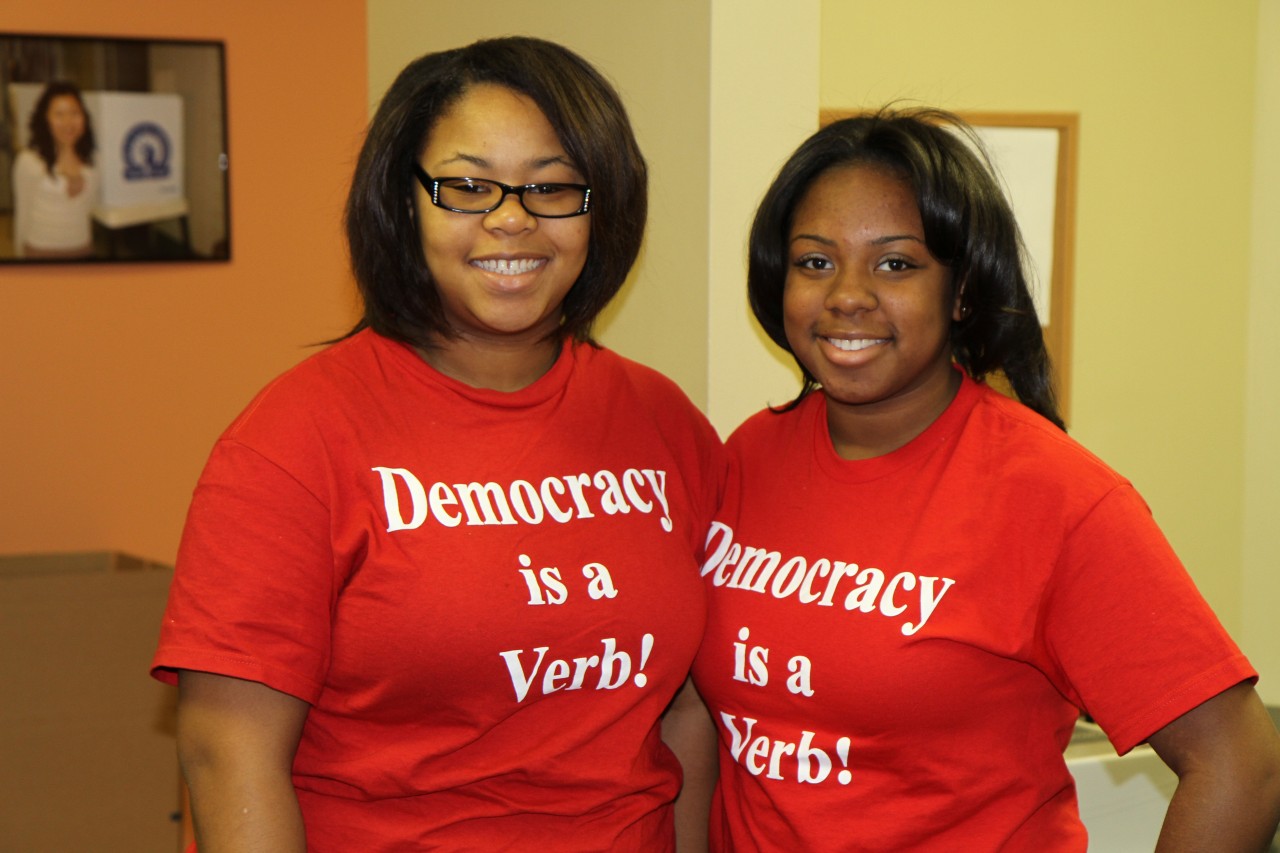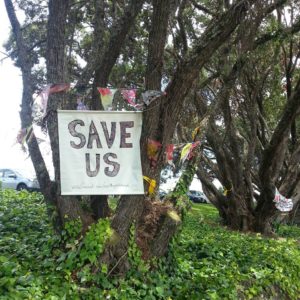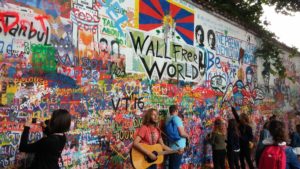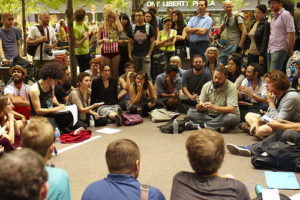The Smart Chicago Collaborative creates onramps to technology. Since 2011, this has meant instituting OpenGov hackathons for developers, hosting local civic apps, and helping social entrepreneurs incubate new businesses. After running these projects, SmartChicago realized they had no project connecting youth and technology. To fill this gap, they created #CivicSummer, a youth technology and advocacy summer camp.
Started in 2012, #CivicSummer partnered with Mikva Challenge and Free Spirit Media to teach teens how to amplify their voice and take civic action by using technology. Each Friday for six weeks, 140 youth from around Chicago listen to lectures, hear from civic hackers and entrepreneurs, and think about new ways to tackle issues facing their community.
Smart Chicago designed the lectures to be informative and captivating. As Dan O’Neil, Executive Director of Smart Chicago, put it, “We start with ideas that already make sense to these students, like mash-ups, and build off from there. … [To discuss an open internet] [w]e talk about Creative Commonsand I show [the youth] all the pictures I have on there and that they are free for anyone to use. They love it.”
Technology Training Engages and Extends with Advocacy
Beyond being introduced to technology concepts, there is a traditional advocacy component. “We’ve been doing analog since we started [fifteen years ago],” explained Brenan Smith-Evans Associate Director of Mikva Challenge, a Chicago non-profit that helps youth become involved in local issues. For Mikva, analog meant sending kids out to collect surveys with clipboards or working in political campaign offices. “Our mission is to engage young people in civics … and you have to train young people to be advocates today, they need digital tools.”
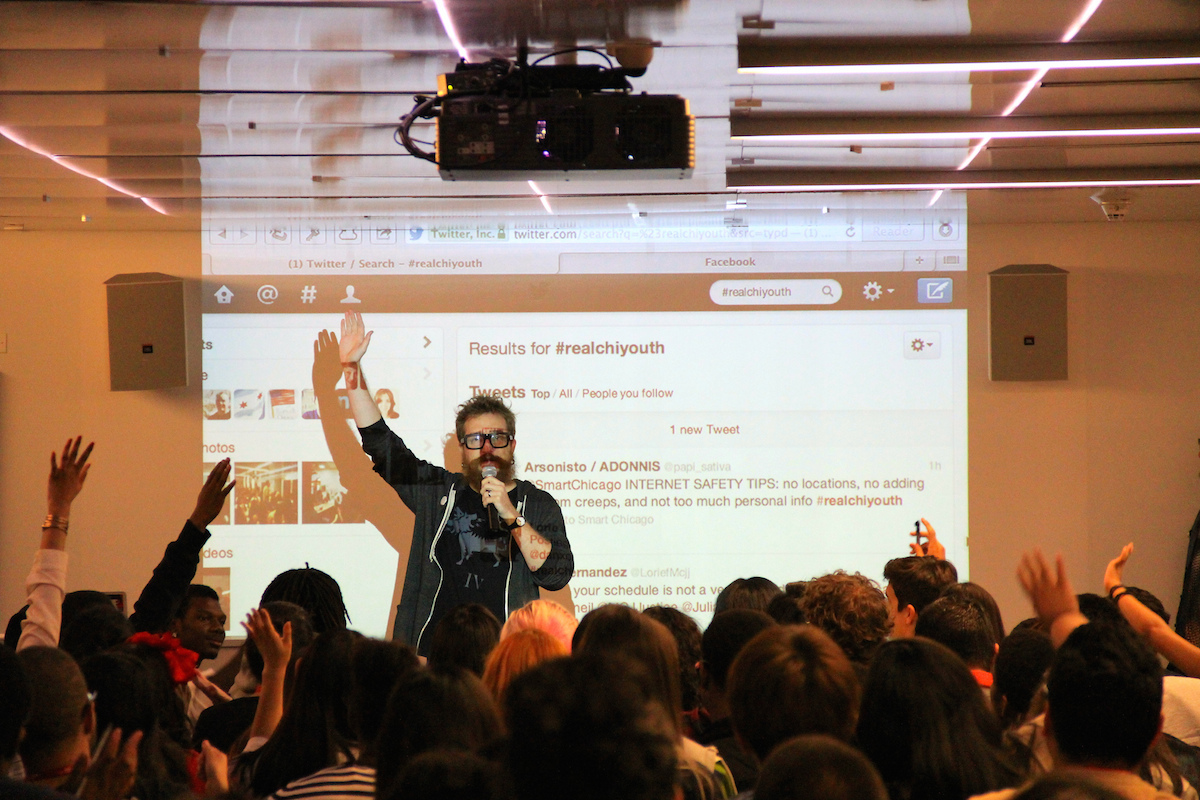
Harper Reed, Obama 2012 CTO, speaks to #CivicSummer participants at Chicago’s 1871 digital startup hub.
#CivicSummer paired well with Mikva’s desire to create digital activists. Mikva’s youth are a mixture of race and class, but also familiarity with technology. While many of her youth are digital natives, Smith-Evans believes that one-third of participants are not, meaning they do not have computers at school nor do they have smart phones. Curriculum covers the gamut from the basics of internet research and tweeting to issues like open data and web development.
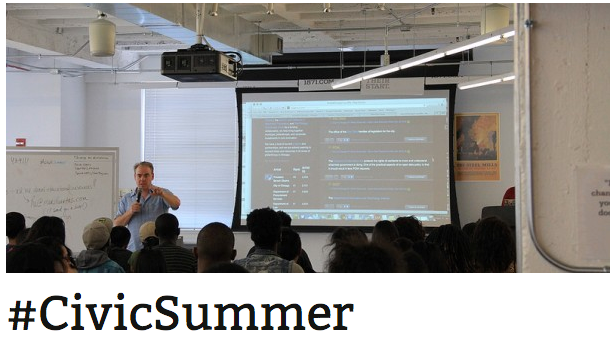
The education provided by #CivicSummer empowers youth participants, “It teaches them that they don’t need a tech person, they can do this stuff. … [After #CivicSummer,] they feel capable.” — Dan O’Neil, Executive Director of Smart Chicago
Mikva’s Friday partnership with #CivicSummer, also called Mass Action Day, provided the youth a number tools to enhance advocacy with technology. Instead of using clipboards, the youth now use digital survey tools and tweet questions to inform their policy; they use Skype to communicate with youth in other cities to discuss new ideas; they published a piece that trended on Buzzfeed; and they even helped the After School Matters Advisory Council, a Chicago hub for youth employment, improve the user experience of their online application to capture a more diverse group of applicants. A few years ago, these types of projects were not even considered.
Smith-Evans says that bringing a tech component to their advocacy work has allowed them to do more with less. “You can’t get one hundred people to a meeting with the mayor, but you can get one hundred people to tweet at him. Technology allows us to be broader in the issues we tackle and include more people in the process.”
Teaching Advocacy with App Development
Another way that technology helped scale Mikva’s advocacy was app development. In 2012, Mikva organized youth to focus on juvenile justice policy. Those youth explored juvenile expungement, the legal process to erase a young person’s criminal record. The youth wanted to help their peers understand the juvenile expungement statute, which is complex and difficult for the average person to understand.
The youth participants believed the only way to help people understand the statute was by creating an app. While not a part of the summer’s planned activities, Smart Chicago paired these youth with the resources to code, manage, and host the final product: expunge.io. This project boiled down the complex statute into a series of simple, binary questions most people can navigate. Similarly, the students in the health policy council created BeYouBeHealthy.com to help Chicago youth better access health care and reproductive information and services. Both apps built during #CivicSummer are free to use and written in open-source for proliferation via Github. Smart Chicago also posts their modeland their curriculum from #CivicSummer lectures online.
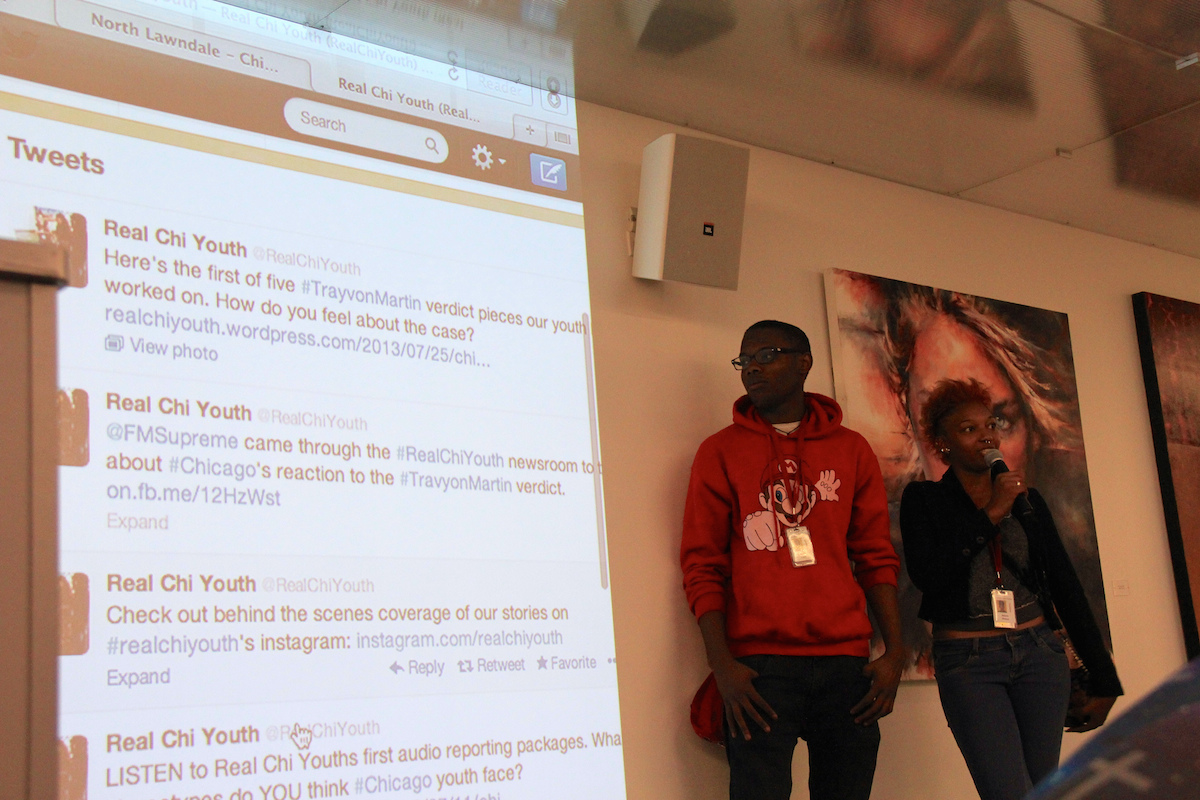
#CivicSummer participants.
O’Neil says that the education provided by #CivicSummer empowers its youth participants, “It teaches them that they don’t need a tech person, they can do this stuff. … [After #CivicSummer,] they feel capable.” Mickey Sharp, a high school junior and #CivicSummer participant, used to think that programmers were awkward men in windowless rooms making magic happen on their computers. Now, Sharp says, “I know there are scripts you learn how to write to create these web pages. It isn’t limited to a guy in a dark room playing Dungeons and Dragons. …Now, being a programmer seems like something I can do.”
Categories:
tech, tools and tactics